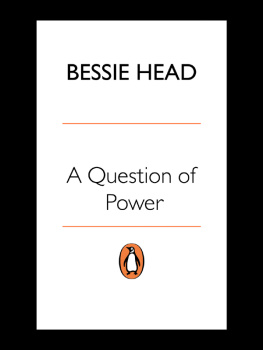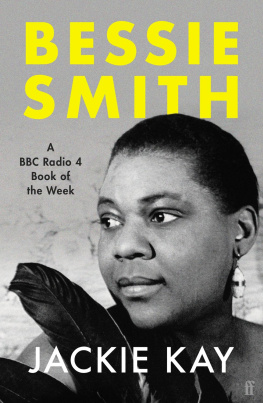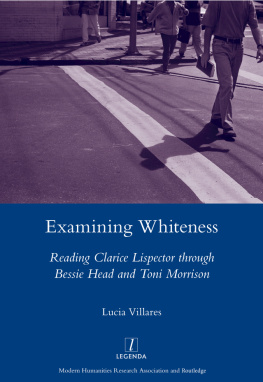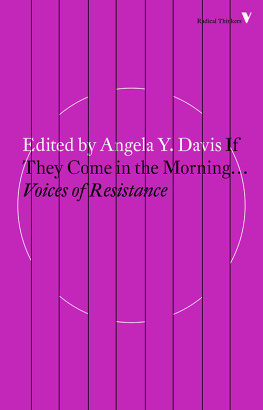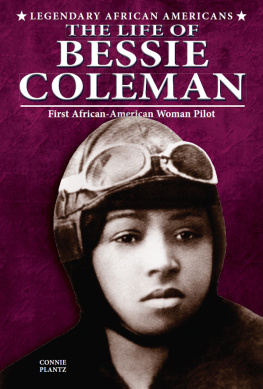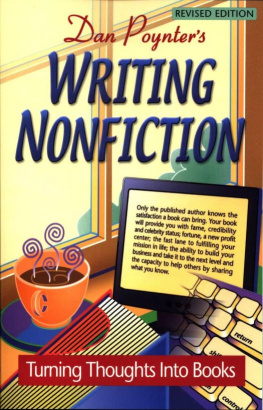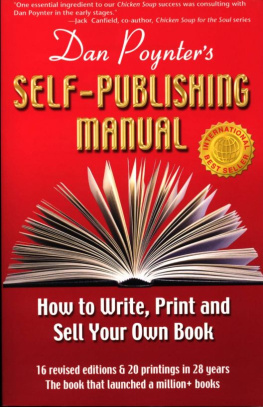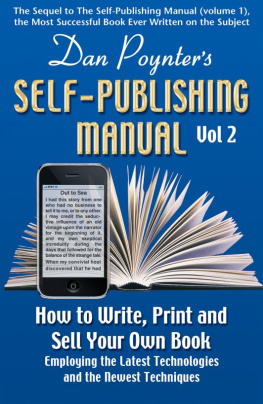Bessie Head - A Question of Power
Here you can read online Bessie Head - A Question of Power full text of the book (entire story) in english for free. Download pdf and epub, get meaning, cover and reviews about this ebook. year: 2012, publisher: Sa Penguin, genre: Art. Description of the work, (preface) as well as reviews are available. Best literature library LitArk.com created for fans of good reading and offers a wide selection of genres:
Romance novel
Science fiction
Adventure
Detective
Science
History
Home and family
Prose
Art
Politics
Computer
Non-fiction
Religion
Business
Children
Humor
Choose a favorite category and find really read worthwhile books. Enjoy immersion in the world of imagination, feel the emotions of the characters or learn something new for yourself, make an fascinating discovery.
- Book:A Question of Power
- Author:
- Publisher:Sa Penguin
- Genre:
- Year:2012
- Rating:3 / 5
- Favourites:Add to favourites
- Your mark:
- 60
- 1
- 2
- 3
- 4
- 5
A Question of Power: summary, description and annotation
We offer to read an annotation, description, summary or preface (depends on what the author of the book "A Question of Power" wrote himself). If you haven't found the necessary information about the book — write in the comments, we will try to find it.
A Question of Power — read online for free the complete book (whole text) full work
Below is the text of the book, divided by pages. System saving the place of the last page read, allows you to conveniently read the book "A Question of Power" online for free, without having to search again every time where you left off. Put a bookmark, and you can go to the page where you finished reading at any time.
Font size:
Interval:
Bookmark:


PENGUIN BOOKS
Africa is a huge continent with a diversity of cultures and languages. Africa is not simple often people want to simplify it, generalise it, stereotype its people, but Africa is very complex. The world is just starting to get to know Africa. The last five hundred years of European contact with Africa produced a body of literature that presented Africa in a very bad light and now the time has come for Africans to tell their own stories.
The Penguin African Writers Series will bring a new energy to the publication of African literature. Penguin Books (South Africa) is committed to publishing both established and new voices from all over the African continent to ensure African stories reach a wider global audience.
This is really what I personally want to see writers from all over Africa contributing to a definition of themselves, writing ourselves and our stories into history. One of the greatest things literature does is allow us to imagine; to identify with situations and people who live in completely different circumstances, in countries all over the world. Through this series, the creative exploration of those issues and experiences that are unique to the African consciousness will be given a platform, not only throughout Africa, but also to the world beyond its shores.
Storytelling is a creative component of human experience and in order to share our experiences with the world, we as Africans need to recognise the importance of our own stories. By starting the series on the solid foundations laid by the renowned Heinemann African Writers Series, I am honoured to join Penguin in inviting young and upcoming writers to accept the challenge passed down by celebrated African authors of earlier decades and to continue to explore, confront and question the realities of life in Africa through their work; challenging Africas people to lift her to her rightful place among the nations of the world.

For
Randolph Vigne and Christine Hawes
Ken and Myrna Mackenzie
And for Bosele Sianana,
With love
Only man can fall from God
Only man.
That awful and sickening endless, sinking
sinking through the slow, corruptive
levels of disintegrative knowledge
the awful katabolism into the abyss!
D H LAWRENCE: From a poem: God
It seemed almost incidental that he was African. So vast had his inner perceptions grown over the years that he preferred an identification with mankind to an identification with a particular environment. And yet, as an African, he seemed to have made one of the most perfect statements: I am just anyone. It was as though his soul was a jigsaw; one more piece being put into place. How often was a learner dependent on his society for his soul-evolution? But then how often was a society at fault and conclusions were drawn, at the end of each life in opposition to social trends. It wasnt as though his society were not evil too, but nowhere else could he have acquired the kind of humility that made him feel, within, totally unimportant, totally free from his own personal poisons pride and arrogance and egoism of the soul. It had always been like this, for him a hunger after the things of the soul, in which other preoccupations were submerged; they were intuitions mostly of what is right, but the confirmation was so strong this time that a quiet and permanent joy filled his heart. A man might laugh at intense suffering only if the evil that tortured him became irrelevant and if obsessive love, which was also one of his evils, became irrelevant too. Had it? Again, he could only apply intuition. Everything felt right with him. A barrier of solitude and bleak, arid barrenness of soul had broken down. He loved each particle of the earth around him, the everyday event of sunrise, the people and the animals of the village of Motabeng; perhaps his love included the whole universe. He said to himself that evening: I might have died before I found this freedom of heart. That was another perfect statement, to him love was freedom of heart.
The mans name was Sello. A woman in the village of Motabeng paralleled his inner development. Most of what applied to Sello applied to her, because they were twin souls with closely linked destinies and the same capacity to submerge other preoccupations in a pursuit after the things of the soul. It was an insane pursuit this time. It did not bear comparing with the lofty statements of mankinds great teachers. Hidden in all their realizations were indistinct statements about evil. They never personified it, in vivid detail, within themselves. What they did say, vaguely, was that it was advisable to overcome ones passions as the source of all evil. It was harder to disclose the subtle balances of powers between people how easy it was for people with soft shuffling, loosely knit personalities to be preyed upon by dominant, powerful persons. The woman had first possessed the arrogance of innocence, and had grown over a period of four years to despise the man Sello. He had freely disclosed some unpleasant and horrific details about his inner life, which damned him as a monumental sinner in her eyes. But once her relationship with the man, Dan Molomo, could be looked at with clear, hard eyes, she had again turned to Sello and held out her hands and said: Thank you! Oh God, thank you for the lever out of hell! He had said something in reply like: You see, you are just the same. It seemed as though, now, she spent hours and hours undoing the links that bound her to Dan, whereas at one time it had been a fierce, forever relationship with wonderful music and fantastic thrills and sensations. If Dan hadnt been such a hard spitter (he spat with glorious contempt at things he dominated) she might have permanently made excuses for the other side of his song. As it was, she said: I might have died under the illusion that I loved him.
The womans name was Elizabeth. Unlike Sello and Elizabeth, the man Dan did not hold conversations with death. Only he did not look so pretty these days, and he was an extremely pretty man. It was arguable whom he wanted to destroy most, Elizabeth or Sello. The three of them had shared the strange journey into hell and kept close emotional tabs on each other. There seemed to be a mutual agreement in the beginning that an examination of inner hells was meant to end all hells for ever. The pivot of the examination was Elizabeth. Both men flung unpleasant details at her in sustained ferocity. She had no time to examine her own hell. Suddenly, in one sharp, short leap to freedom, she called it Dan. He was taken off guard. He had been standing in front of her, his pants down, as usual, flaying his powerful penis in the air and saying: Look, Im going to show you how I sleep with B She has a womb I cant forget. When I go with a woman I go for one hour. You cant do that. You havent got a vagina He was going on like that when she had landed, after four years of it, on unvolcanic ground. She was shaking her head slowly, befuddled by the tablets prescribed for a mental breakdown, when suddenly Sello said something: Love isnt like that. Love is two people mutually feeding each other, not one living on the soul of another, like a ghoul. These were the first words that sank into her pain-torn consciousness after a long interval of contemptuous hatred of Sello. First she repeated the words over and over. Next, she threw the tablets out of the window. In the early morning, she sped down a dusty road, greeting any passer-by with an exuberant shout of joy. So infectious was her happiness that they responded with spontaneous smiles. The panic-stricken Dan pulled up his pants too late. He said: Look, Im uplifted, Im changed. She no longer heard.
Font size:
Interval:
Bookmark:
Similar books «A Question of Power»
Look at similar books to A Question of Power. We have selected literature similar in name and meaning in the hope of providing readers with more options to find new, interesting, not yet read works.
Discussion, reviews of the book A Question of Power and just readers' own opinions. Leave your comments, write what you think about the work, its meaning or the main characters. Specify what exactly you liked and what you didn't like, and why you think so.

